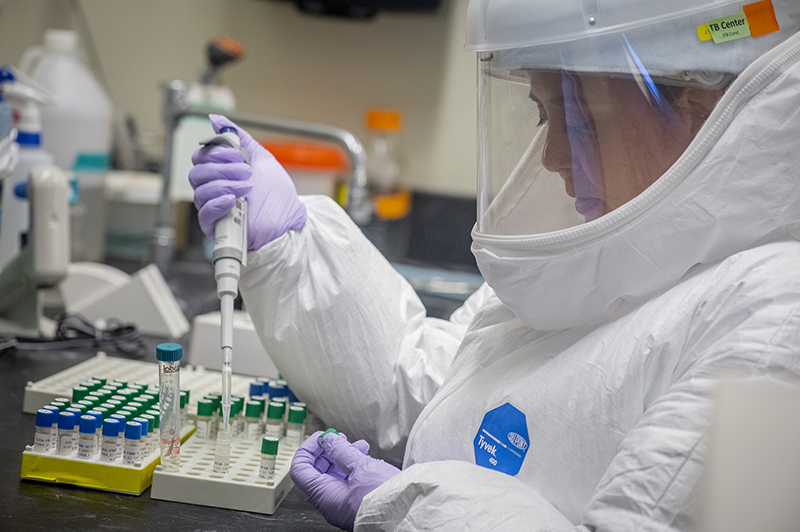
The Tulane National Primate Research Center is the only National Primate Research Center with an on-site Regional Biocontainment Laboratory (RBL). The Tulane RBL is a high-capacity 40,000 square foot facility and a CDC/USDA Select Agent registered entity.
The RBL also maintains the High Containment Research Core (HCRC), which provides full or partial support for researchers seeking to perform BSL3 and Select Agent studies. The HCPRC provides services for bacterial/viral culture and propagation, as well as sample preparation and processing.
Complete BSL3 studies can be performed within the BSL3 or Select Agent Environment through utilization of our highly trained staff, and integration with our biosafety and quality assurance programs. Data collection is carried out through our Labkey and LabArchives data collections systems in compliance with all federal research standards for data collection, maintenance, and data sharing plans.
Major research and services within the RBL include
- RBL-dedicated veterinary support staff including multiple research veterinarians and veterinary technicians that are SA-cleared and trained for on-site support of ongoing research studies
- Full-service aerobiology research program and service core for exposure studies involving multiple species including nonhuman primates and rodent species
- Advanced imaging including PET/CT and radiograph (X-ray) within BSL-3 envelope
- BSL-3-based and maintained clinical pathology laboratories
- Facility-integrated wireless biotelemetry, including surgical device implantation, active data collection for >32 animals concurrently, and comprehensive post-study data analysis and storage
- Full operating suite for major in-life surgical procedures within BSL-3 envelope
- Laboratory-maintained cell-sorting capabilities
- Numerous, active disease models in NHP and rodent species that have already been characterized at Tulane RBL specifically in support of medical countermeasure (MCM) testing and evaluation studies
Additional notable capabilities at TNPRC that support the RBL include
- Dedicated institutional commitment to biosafety, biosecurity, and dual-use research of concern
- An on-site colony of ≈5,000 animals which include predominately Indian-lineage bred rhesus macaques (M. mulata), specific pathogen free (SPF) and aging subcolonies, and a vervet (C. atheiops) cohort
- Advanced digital pathology services capable of image acquisition, storage, quantitative analysis with machine learning, as well as remote access/data sharing
- Ongoing prenatal, transplacental, and postnatal studies of infectious agent transmission
- Quality Assurance/Quality Control Program available within BSL-2/3
- Comprehensive project management for contracted studies
- Existing capability that supports advanced immunological assay development and analysis in BSL-2/3
In addition, the TNPRC has on-site Principal Investigators that maintain the following NIH/NIAID IQID-accessible contracts
- Preclinical models of infectious disease
- Simian vaccine evaluation unit
- Cellular immunology laboratory
